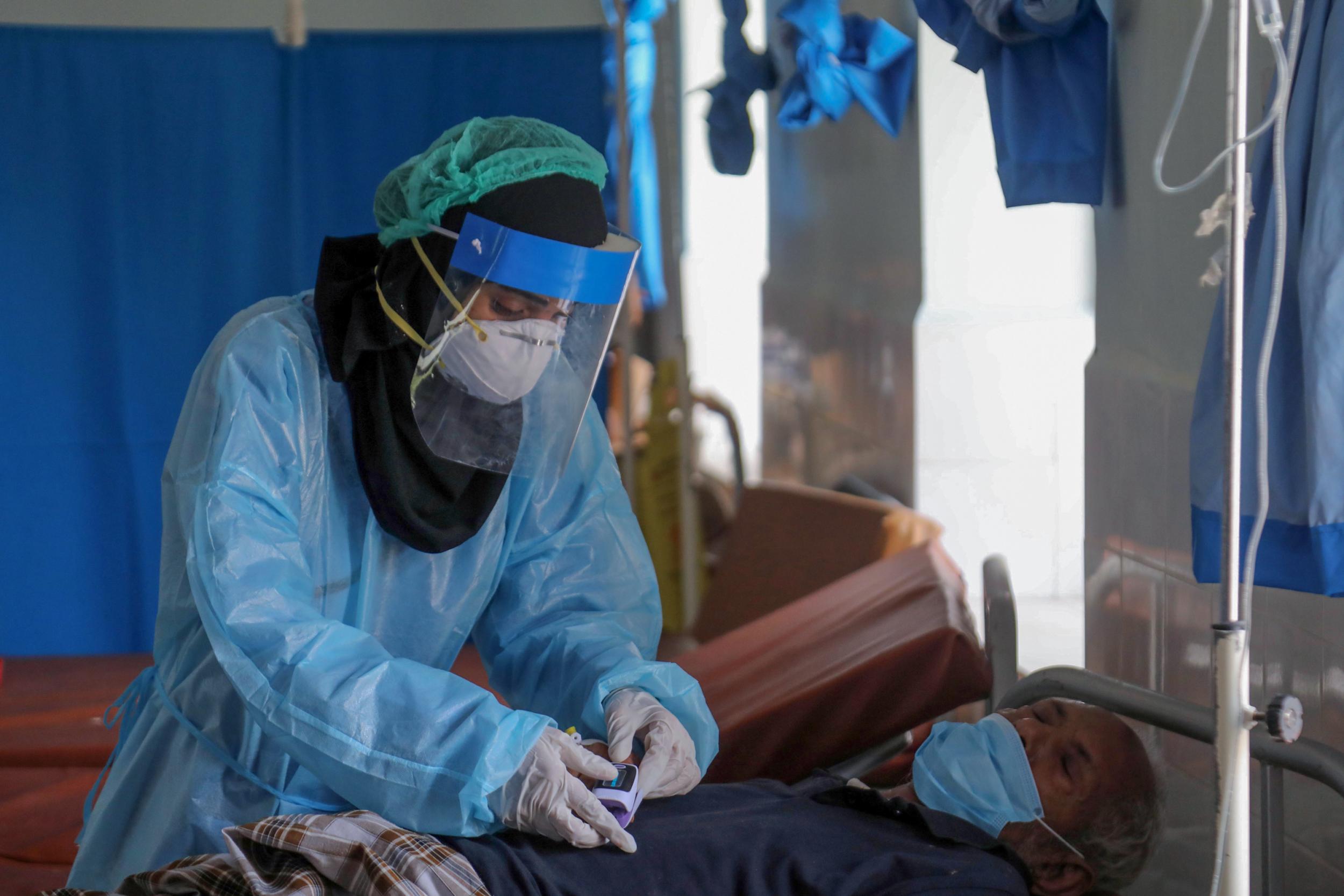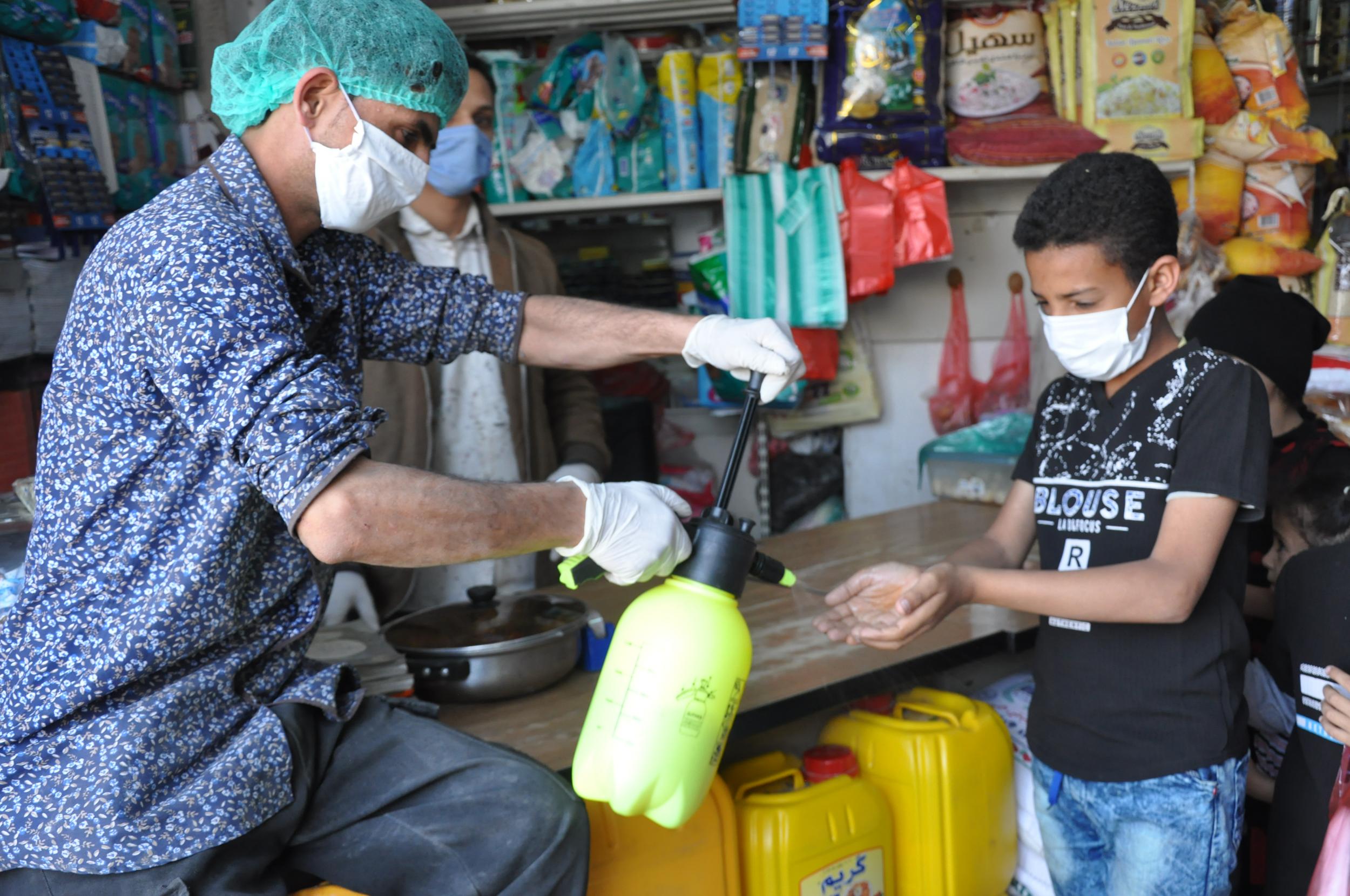Yemen: ‘Nearly 100 medics killed by coronavirus’, dealing devastating blow to war-torn nation
Country’s Covid-19 mortality rate five times the global average and among the highest in the world, says reports

Your support helps us to tell the story
From reproductive rights to climate change to Big Tech, The Independent is on the ground when the story is developing. Whether it's investigating the financials of Elon Musk's pro-Trump PAC or producing our latest documentary, 'The A Word', which shines a light on the American women fighting for reproductive rights, we know how important it is to parse out the facts from the messaging.
At such a critical moment in US history, we need reporters on the ground. Your donation allows us to keep sending journalists to speak to both sides of the story.
The Independent is trusted by Americans across the entire political spectrum. And unlike many other quality news outlets, we choose not to lock Americans out of our reporting and analysis with paywalls. We believe quality journalism should be available to everyone, paid for by those who can afford it.
Your support makes all the difference.Nearly 100 healthcare workers have died from coronavirus in Yemen, one of the highest figures worldwide for medical staff, according to a new report.
MedGlobal, an international health charity, said in a report released on Thursday that at least 1,610 Covid-19 cases have been reported in war-torn Yemen, including 446 deaths.
This means the rate of confirmed virus deaths in Yemen – 27 per cent – is five times the global average and possibly the highest in the world.
But the true number of infections is likely far higher due to a lack of testing, and there is some speculation that the real mortality rate might be lower.
The Chicago-based MedGlobal said 97 infectious disease experts, medical directors, midwives and pharmacists are believed to have succumbed to the disease, including Dr Yassin Abdul Warith, one of the country’s leading epidemiologists.
The loss of highly trained health workers deals a devastating blow to Yemen, one of the world’s most impoverished nations, in the midst of a calamitous years-long civil war.
Only half the country’s medical facilities are functioning and there are fewer than 10 medics for every 10,000 people, less than half the World Health Organisation benchmark for basic health coverage.
“More than one in four patients in Yemen who contract Covid-19 will die,” said Dr Zaher Sahloul, head of MedGlobal.
He explained that the high death rate could be attributed to multiple problems including crippling lack of medical personnel, healthcare facilities and supplies including personal protective equipment (PPE) and Covid-19 testing kits, oxygen and ventilators.
Dr Sahloul cautioned that the high number of health worker deaths in Yemen suggests that the true overall death toll could be 10 times higher than officially recorded.
“Coronavirus is overwhelming the healthcare system and destroying what is left of it,” he said. “This will impact the country for decades from now.”
Deaths in the medical community and an exodus of personnel, as well as disruptions in higher education, have resulted in a chronic lack of skilled medical professionals. According to MedGlobal, around 18 per cent of the country’s 333 districts have no doctors at all.
Physicians and health workers in Yemen paint a gloomy picture of doctors and nurses risking their lives to save coronavirus patients amid a crumbling health care system already ravaged by years of war. They describe chaotic scenes in virus wards with patients dying in waiting rooms.
“At the start in Sanaa, the hospitals were not prepared, there were no testing kits, creating panic among doctors and nurses who were afraid they would get infected,” says Asmaa Dunia, MedGlobal’s Yemen programme manager who has spent the last few months visiting many of the 14 hospitals the charity supports.
“Three hospital doctors in the north of the country told me of cases arriving in critical condition to the emergency wards and dying within hours before they could even be tested.”
Medical charity Medecins Sans Frontieres (MSF) raised similar concerns. Ahmed Mahat, MSF head of mission in Yemen, told The Independent from Sanaa that they ran out of PPE last month because of restrictions on flights coming into the country.
Like Dr Arishi, Dr Mahat said among the worst problems now was the soaring cost of oxygen cylinders which have gone up six-fold in price since the start of the war.
The conflict erupted in 2014 when the Iran-backed Houthi rebels seized control of most of the country, ousting the recognised president Abedrabbo Mansour Hadi.
In March 2015 Saudi Arabia and its Gulf allies launched a bombing campaign to reinstate Mr Hadi.

Five years on, there is little hope of an end to the fighting, which has killed 100,000 people and sparked the world’s largest humanitarian crisis according to the United Nations.
Now nearly 15 million people are on the brink of famine, a number which the World Food Programme said on Wednesday could swell by at least a million more over the next six months as conditions deteriorate.
MedGlobal has called for countries across the world and the WHO to provide more testing kits and supplies to Yemen as well as back a ceasefire.
“The international community should not be sending bombs and missiles but oxygen cylinders, PPE and medical volunteers who want to help,” Dr Sahloul said.
Subscribe to Independent Premium to bookmark this article
Want to bookmark your favourite articles and stories to read or reference later? Start your Independent Premium subscription today.
Join our commenting forum
Join thought-provoking conversations, follow other Independent readers and see their replies
Comments